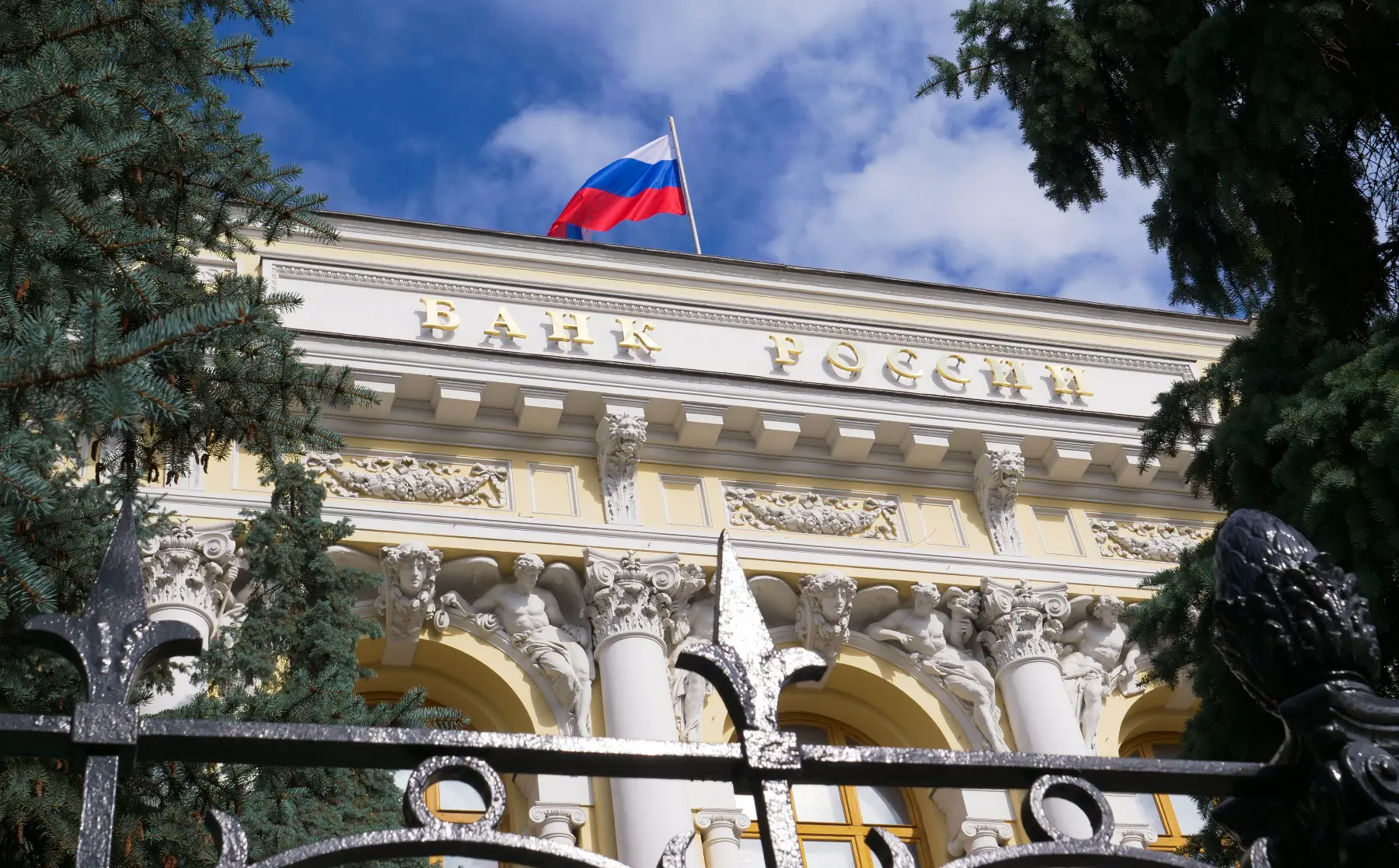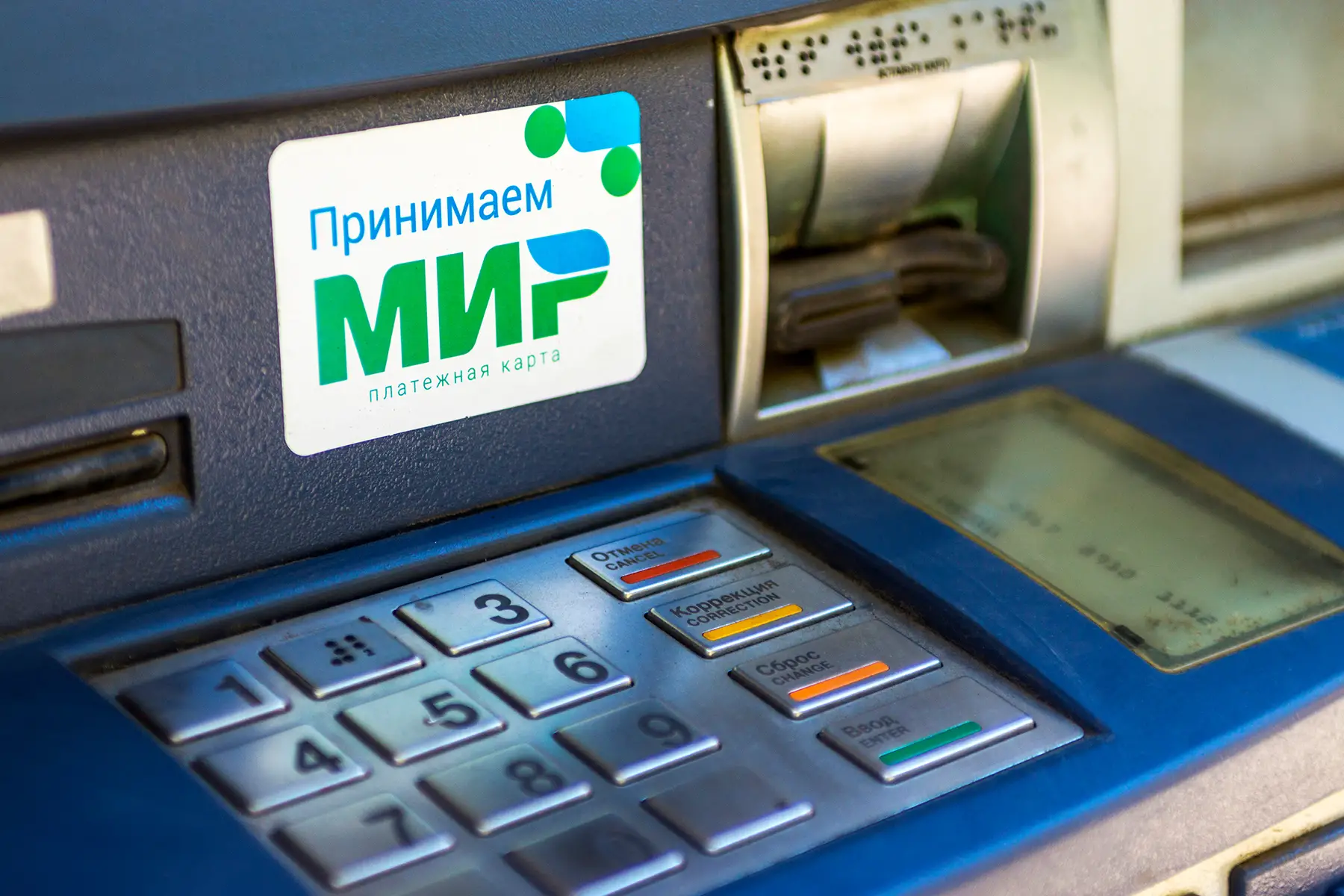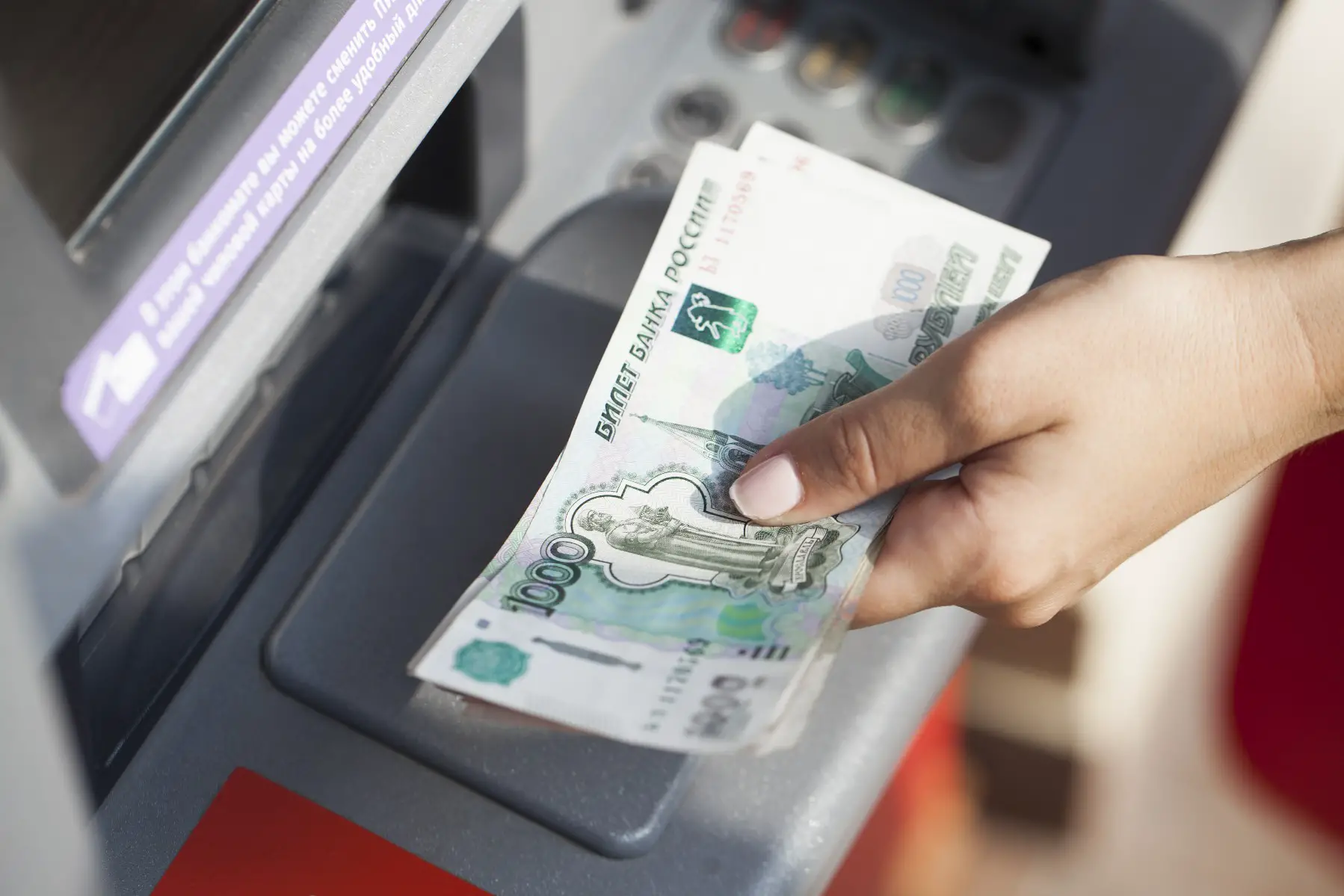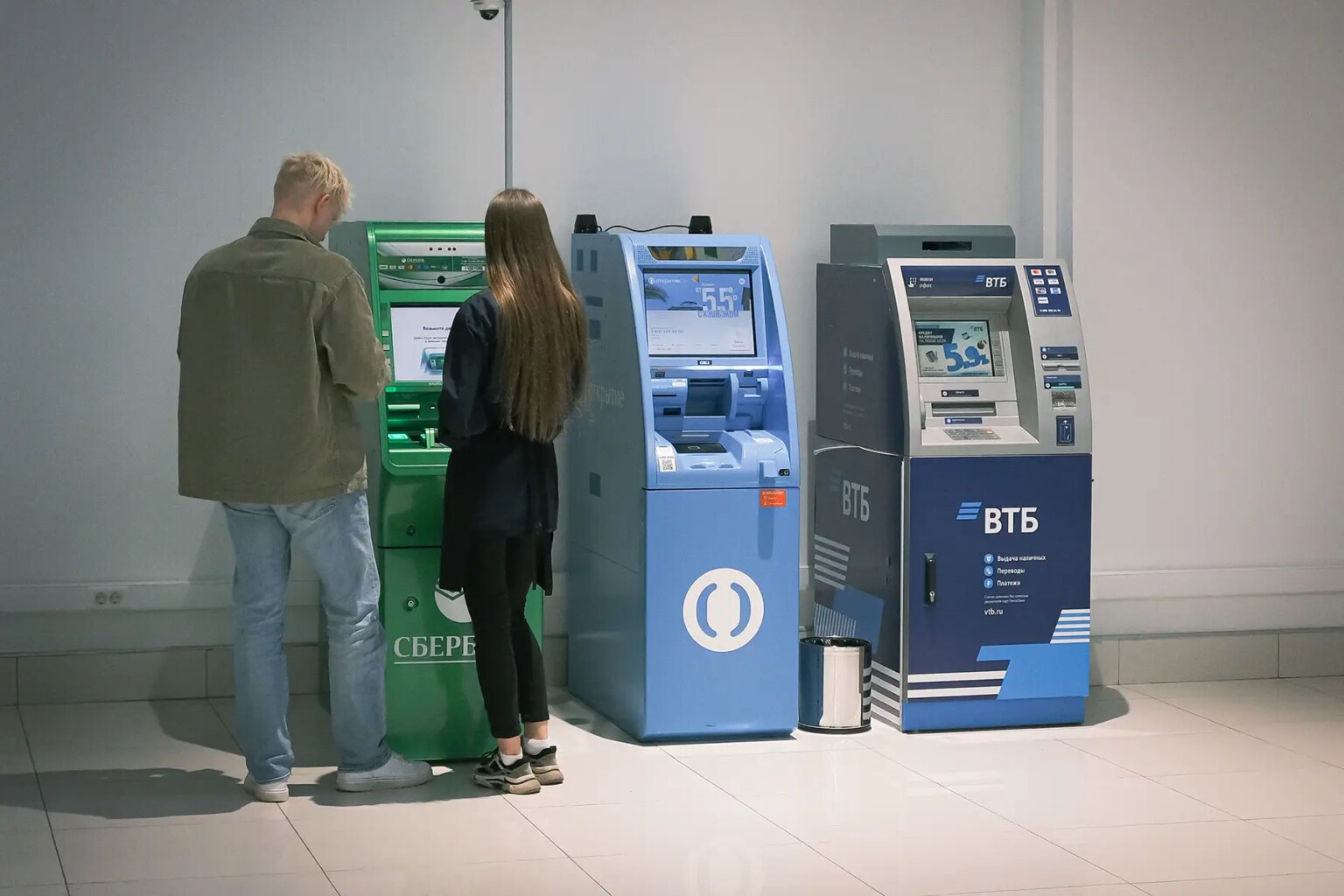Important notice from the Editor in Chief
Maintaining our Russian site is a delicate matter during the war. We have chosen to keep its content online to help our readers, but we cannot ensure that it is accurate and up to date. Our team endeavors to strike the right balance between giving information to those who need it, and respecting the gravity of the situation.
The Russian banking system has undergone significant modernization in the last few years, with providers increasingly offering online and app-based banking. Still, cash remains king in more rural parts of the country. This guide Russian banks includes advice on the following:
- The banking system in Russia
- Currency in Russia
- Banks in Russia
- Banking services in Russia
- Opening a bank account in Russia
- Payment methods in Russia
- Banking fees in Russia
- Offshore banking in Russia
- Ethical banking in Russia
- Banking security and fraud in Russia
- Making a complaint about banks in Russia
- Useful resources
The banking system in Russia
The Russian banking system comprises of two parts: the central bank and commercial banks. The Bank of Russia supervises the country’s banks and lending institutions and issues banking licenses. As of May 2021, there are 350 banks operating in Russia – 239 have a universal license (available to banks whose equity exceeds 1 billion ₽), while 111 smaller banks have a basic license.
The banking system in Russia isn’t up to the technological standards of some of its Western counterparts, though the industry has made significant strides in recent years.

Many people in more rural parts of Russia don’t have a bank account, but cash use has decreased dramatically over the last decade. In 2012, 76% of transactions were made with cash, but by 2019 this had fallen to just 31%. Data from Russia’s largest bank, SberBank, found that 68% of all cashless transactions were made with cards in the first half of 2019.
Currency in Russia
The currency in Russia is ruble or rouble (RUB/p.), with 100 kopeks (or Kopecks) making up one Russian ruble. The most frequently used Russian money banknotes are 50, 100, 500, 1000, and 5000 ₽, while coins are available in denominations of 1, 2, 5, к.10, and к.50 ₽.
As of June 2021, exchange rates are as follows:
- $1 = 72.87 ₽
- €1 = 88.65 ₽
- £1 = 103.18 ₽
You can find up-to-date exchange rates on the Bank of Russia‘s website.
Cash machines and ATMs in Russia
ATMs are commonplace in larger Russian cities such as Moscow and St. Petersburg. Many ATMs operated by the top Russian banks provide instructions in English as well as Russian, but if you’re heading to rural or isolated areas you should take some Russian money with you as a backup.
From a security perspective, it’s best to use an ATM operated by one of the major banks and avoid using isolated ATMs, especially at night.
When withdrawing cash at an ATM using a foreign card, you may need to pay a fee. This will be charged by your bank rather than the ATM provider, and how much you’ll pay varies significantly between providers (check your terms and conditions). In some instances, the fee will be higher if you use an ATM operated by one of your bank’s competitors.
Banks in Russia
The six largest banks in Russia are as follows:
- SberBank (state owned)
- VTB
- Gazprombank
- VTB24
- Bank Otkritie Financial Corporation
- Bank of Moscow
Other Russian banks include Russian Agricultural Bank (Rosselkhozbank, state-owned), Alfa Bank, Promsvyazbank, Bank UralSib and Sovcombank. You can check the ratings of any Russian bank at banki.ru

Bank branch opening hours in Russia vary. If you bank with a larger organization, opening hours tend to be around 9:00–17:00 or 18:00 on a weekday and from 9:00 until around 15:00 on a Saturday.
Account management is straightforward in major cities. However, it can be more troublesome in rural areas, where branches are few and far between.
Banking services in Russia
Banks in Russia offer a range of products for expats, from everyday current accounts to regular savings accounts. The top Russian banks provide additional services such as mortgages, company loans, brokerage and investments.
Current accounts: A range of current accounts are available in Russia, with fees depending on the services included. For example, SberBank offers everything from standard debit card accounts to gold accounts that can be opened in different currencies.
Credit cards: Russian banks provide a range of credit cards, with incentives including air miles, cashback and shopping discounts available. Some credit cards are fee-free, but others come with an annual charge.

Loans: Most major banks offer loans to people with permanent residency in Russia. How much you can borrow will depend on the purpose of the loan (e.g. consolidating debts or buying a car) and your annual earnings.
Savings accounts: Instant access and fixed-term savings accounts are available in Russia. As with many countries, interest rates are very low at the moment, with rates on instant access savings accounts around 0.15%.
Mortgages: Many of the largest banks offer mortgages to expats buying homes in Russia. Expats will generally need a deposit of at least 20% of the property’s price.
Insurance: Banks offer a wide range of insurance products, from income protection products to health insurance plans.
Opening a bank account in Russia
It’s possible to open a bank account in Russia in person at a branch or online. Some employers will automatically open a bank account to pay your salary into when you start your job.
When applying for an account, some banks may require a letter from your employer as part of the process.
Payment methods in Russia
Cash
The popularity of cash varies depending on where you live in Russia. As mentioned earlier, cash has become far less common in Russia over the last decade, but more rural areas still rely heavily upon it as a form of payment.
Data from Sberbank shows that cashless payments exceed 60% of all transactions in five cities, with Syktyvkar and Severodvinsk topping the charts. In St Petersburg, cashless transactions make up 55% of transactions, while in Moscow the figure is 54%.
Checks
Checks (cheques) aren’t widely used in Russia because of their long processing times, and banks tend to charge a commission to cash them. How much you’ll need to pay depends on the amount of money being cashed and the currency you’re using.
Debit cards
Debit cards are widely used in Russia. Historically, Visa and Mastercard were the two most commonly used types, but their dominance is now being threatened.
In 2015, the Russian government introduced a new payment card network called Mir, after Visa and Mastercard cut off some Russian services due to US and EU sanctions.

Mir is growing in popularity. Figures from GlobalData show that as of 2020, just under 75 million debit cards have been issued by Mir. This amounts to 29% of all debit cards in Russia. The Russian government requires that merchants who turnover more than 30 million ₽ per year must accept Mir. This threshold will reduce to 20 million ₽ in July 2021.
Most Russian banks provide debit cards with contactless technology. Contactless payments involve tapping your card on a reader rather than entering your PIN number, and you can make transactions of up to 1,000 ₽ using this feature.
Credit cards
When opening a bank account, you’ll generally receive a debit card for your everyday spending rather than a credit card, but you can apply separately for a credit card account.
Most foreign credit cards are accepted in hotels and restaurants in Russia, though you may need to pay cash in some places, such as museums, smaller shops, and when taking a taxi. If you use a foreign credit card, you may need to pay foreign transaction fees and currency conversion fees, the cost of which will vary depending on your provider.
Direct debits and standing orders
Direct debit payments are common in Russia. By setting up an automatic payment from your bank account for your utility bills, you can sometimes benefit from lower transaction fees. Alternatively, most banks allow you to pay your bills by bank transfer through their online banking services or using their ATMs.
Online and mobile payments
Major banks in Russia have their own online banking services and apps that allow you to conduct a variety of everyday tasks without visiting a branch.
Online and mobile banking offers services such as internal and foreign currency transfers, bill payments, standing orders, and electronic statements.
International money transfers
Most banks in Russia offer wire-transfer services. If you make an international wire transfer, your recipient will usually receive the funds within a couple of business days. You may need to pay a fee of between 1% and 2% of the amount you’re transferring. Some banks don’t allow international money transfers to be made online. In that case, you’ll need to go to a branch with proof of identity and the recipient’s details.
If you’re thinking of transferring money to your home country on a regular basis, you might consider opening an account in that currency alongside your Russian bank account. This could be done via the Russian or Moscow International Bank or one of the alternatives. Not only will this cut down on fees, but it also means you can avoid the bad exchange rates.
Banking fees in Russia
As in many countries, fees for banking services vary depending on the type of account you have. Basic current accounts are available without annual fees, but those with small up-front fees may prove their cost worthwhile by providing additional benefits, such as free ATM withdrawals and money transfers.

In many cases, you might have to pay a fee when withdrawing cash at an ATM in Russia. Charges may be higher if you use an ATM run by a bank other than your own. The amount you’ll pay varies, but it can be more prudent to occasionally withdraw larger amounts instead.
Offshore banking in Russia
Some expats living in Russia may find that opening an international offshore bank account is a prudent way to manage their finances. There are various benefits of offshore banking including high levels of customer protection and a range of different investment funds. If you’re considering banking offshore, seek the advice of a financial adviser as to the best investment options.
Offshore savings accounts are available in a range of currencies and are usually geographically portable. Some savings accounts, however, require large deposits upon opening. Russian investors typically based their offshore accounts in Cyprus until 2013, when its financial system crashed and hit Russian investors. Now, popular offshore investment locations include Luxembourg, Singapore, and the British Virgin Islands.
Ethical banking in Russia
Russian banks are increasingly showing an interest in more ethical and sustainable practices. In January 2021, Sberbank signed up to the United Nations’ principles for responsible banking.
The Association of Banks of Russia has also pledged to implement environmental and social principles.
Banking security and fraud in Russia
Bank fraud and scams are on the rise everywhere, and Russia is no exception. A 2020 survey by the NAFI Analytical Center found that a third of cardholders in Russia had experience fraud, including telephone and money transfer scams, messages or letters with malicious links, and correspondence about card transactions they didn’t perform.
The Bank of Russia warned consumers about the dangers of telephone fraud and how to avoid being scammed in December 2020.
Lost or stolen bank cards in Russia
If you lose your debit card, you should be able to find details of your bank’s call center on its website. You may be charged a fee to have the card reissued, depending on the terms of your account.
You can find out about how to report a lost or stolen card at some of Russia’s main banks using the links below:
Making a complaint about banks in Russia
The Bank of Russia says it received more than 63,000 complaints in the first quarter of 2021.
If you have a problem with a bank in Russia and are unhappy with its response, you can submit a formal complaint to the Bank of Russia. When complaining, you’ll need to provide evidence of the problem and your contact details.




